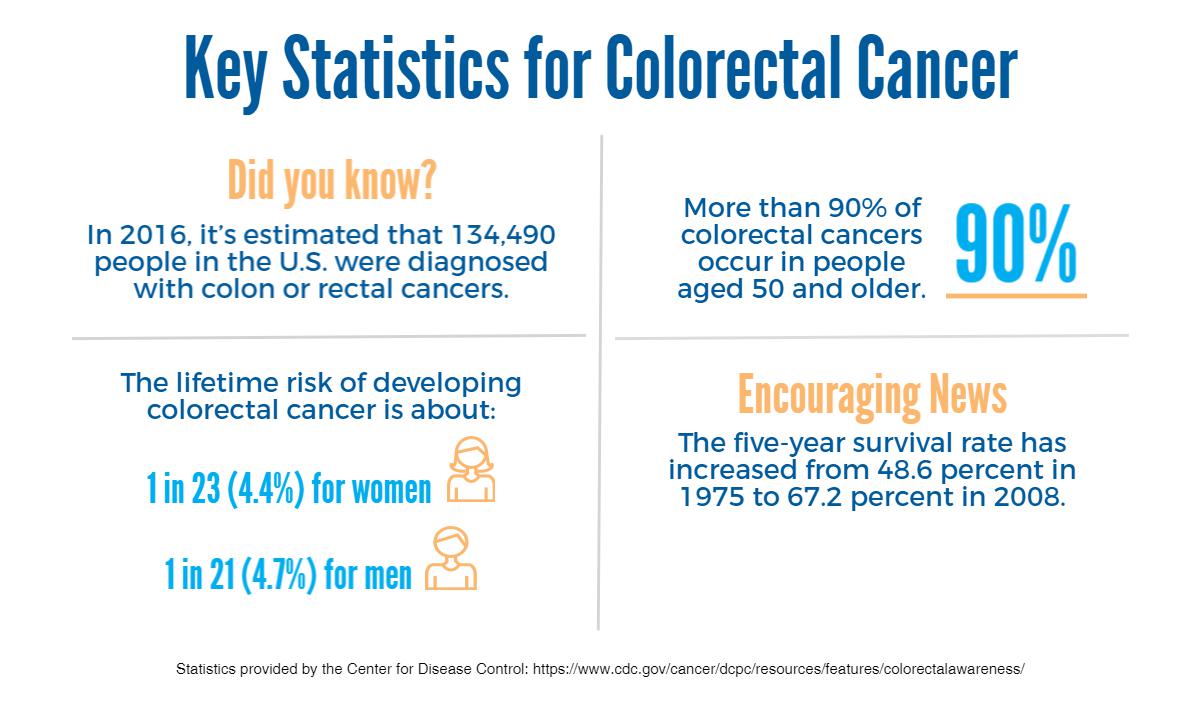March marks Colorectal Cancer Awareness Month, a time to share information and raise awareness about these devastating diseases. Here are three key things to know along with some resources to learn more.
Opposing trends
About 90 percent of colorectal cancer cases are diagnosed in people older than age 50, but in recent years, the number of cases diagnosed in people in their 20s and 30s has starkly increased, according to a recent report in the Journal of the National Cancer Institute. In fact, researchers found that the risk of developing colon cancer is double and the risk of developing rectal cancer is quadruple for people born in 1990 when compared to people born in 1950. In 2016, it’s estimated that 134,490 people in the U.S. were diagnosed with colon or rectal cancers.
A steady drop and an encouraging rise
There is good news though. Thanks to improved screening methods and treatments, the numbers of deaths from colorectal cancers have been on the decline—about 2.7 percent on average from 2004 to 2013, according to the National Cancer Institute. This trend is reflected in the five-year survival rate, which has increased from 48.6 percent in 1975 to 67.2 percent in 2008.
Encouragingly, the total number of cases also has continued to fall—about 3.2 percent on average each year over the past 10 years—again likely related to improved screening.

Catching cancer early is critical. Here are some of the most common signs of colorectal cancers from the American Cancer Society:
- A prolonged change in bowel habits
- Cramping or abdominal pain
- Rectal bleeding, blood in the stool or dark stools
- A feel that you have to go that is not alleviated by a bowel movement
- Weakness, fatigue or unintended weight loss
You can find more information about colorectal cancers from the American Cancer Society here and here.
An ongoing Van Andel Research Institute–Stand Up To Cancer Epigenetics Dream Team-supported phase II trial is investigating a potential new therapy for colorectal cancer. Learn more here and here. You can also hear from Trina Taylor, a patient on the trial, who shared her story as part of Stand Up To Cancer’s telecast here.